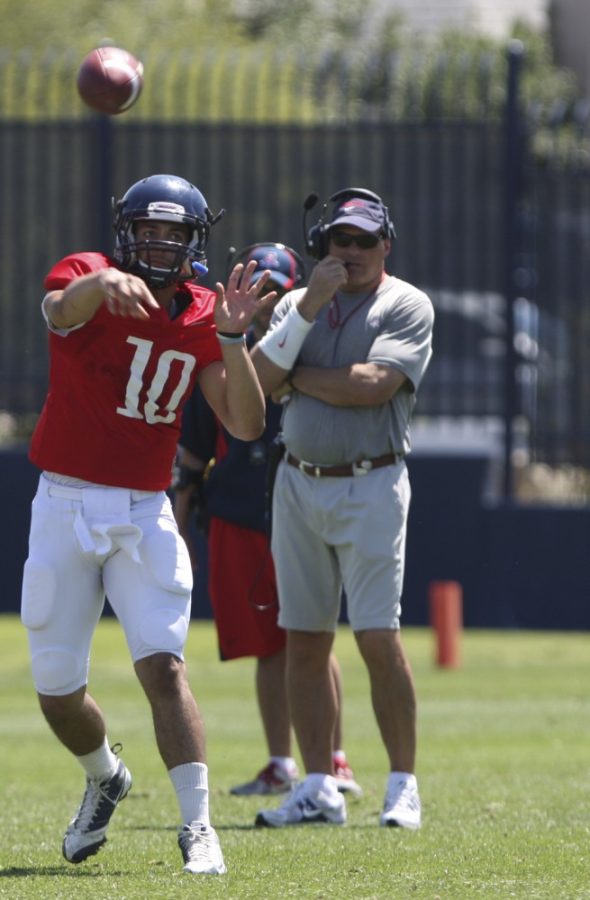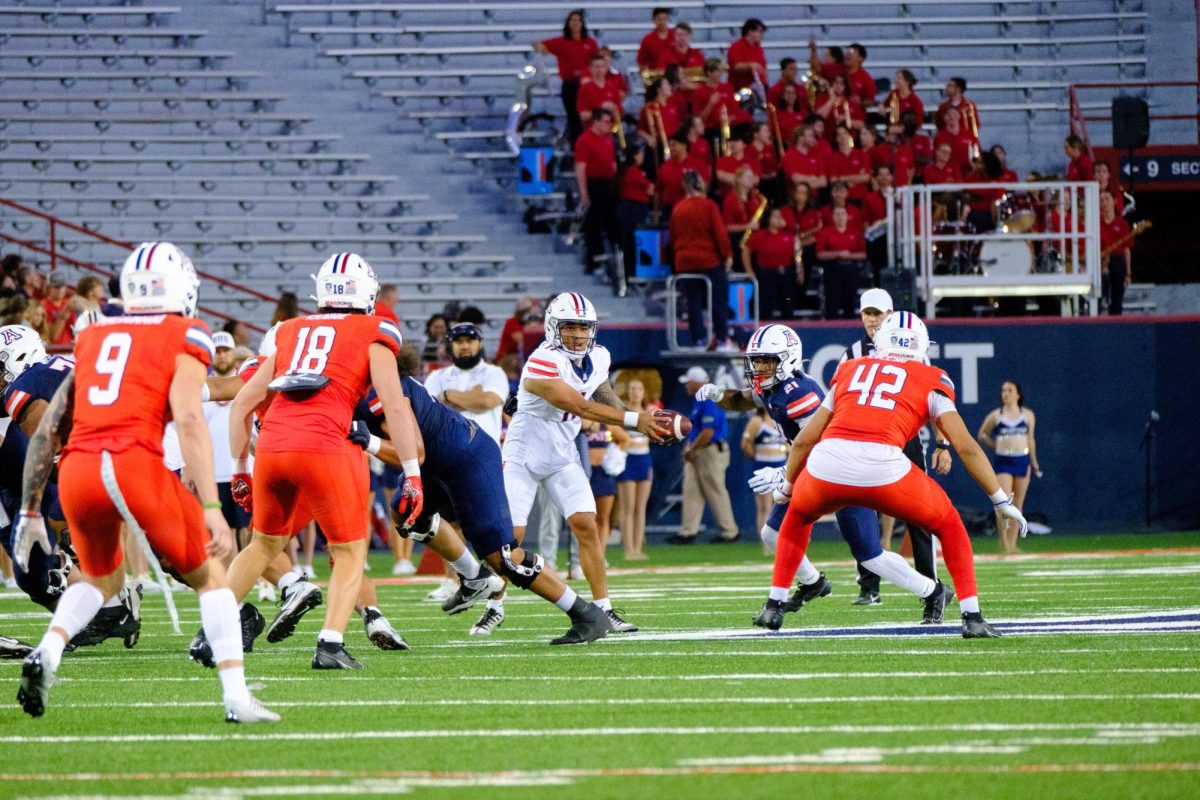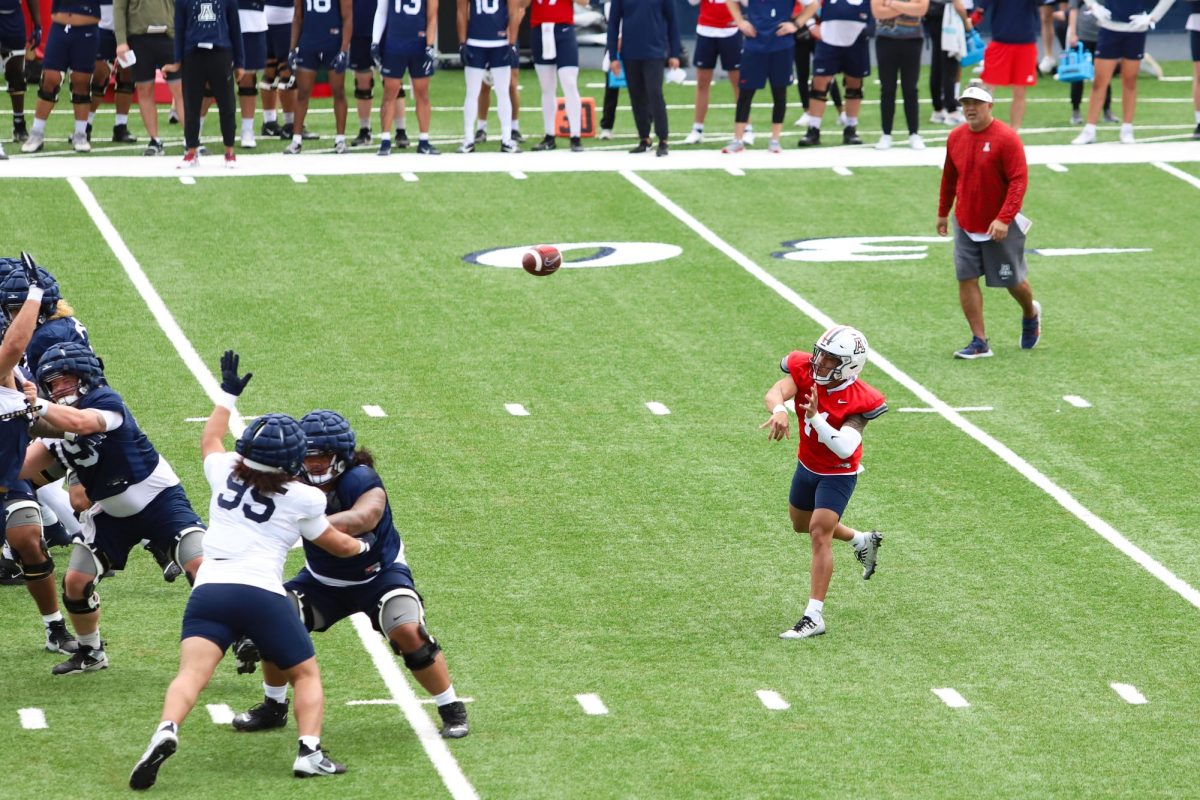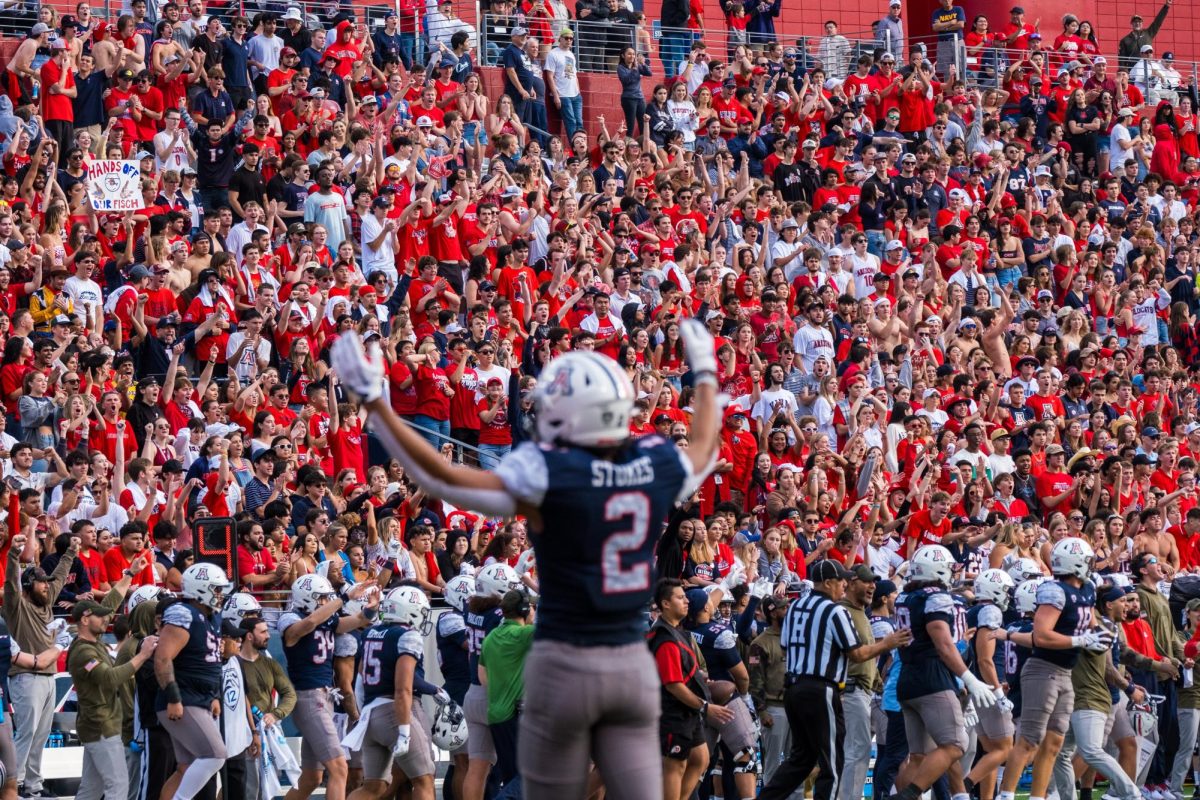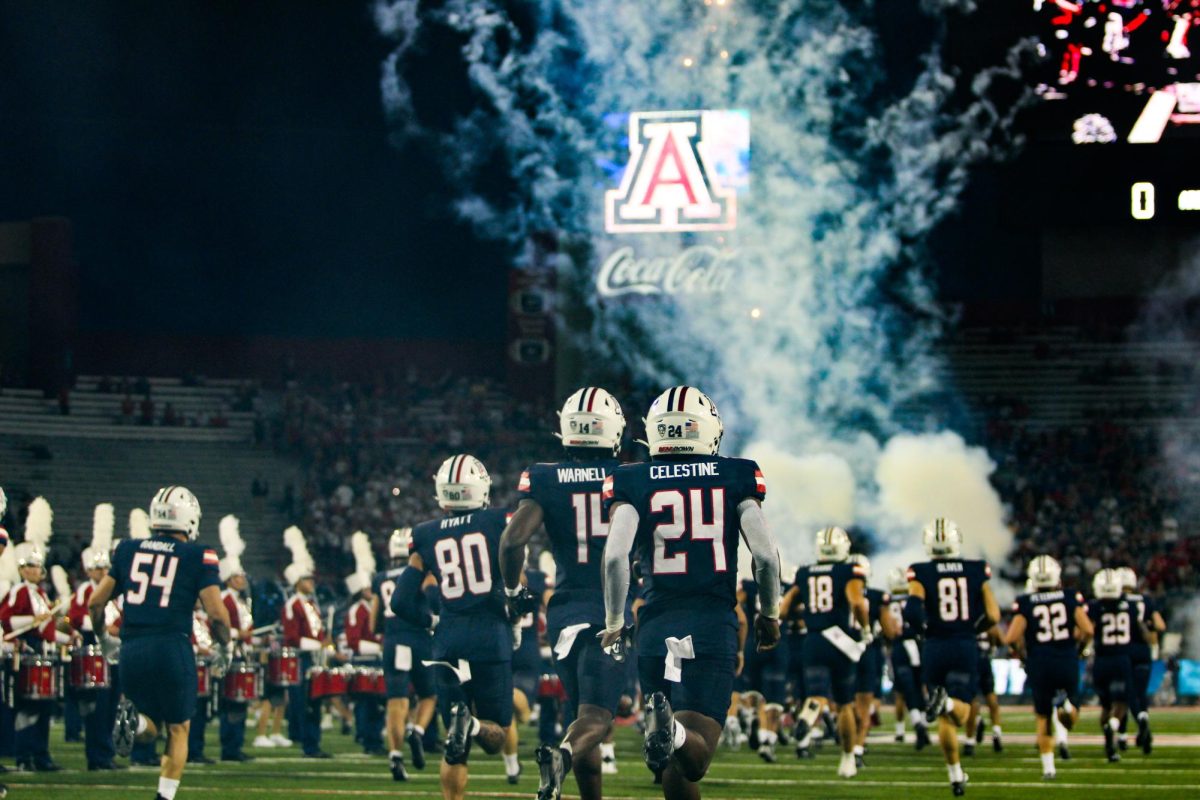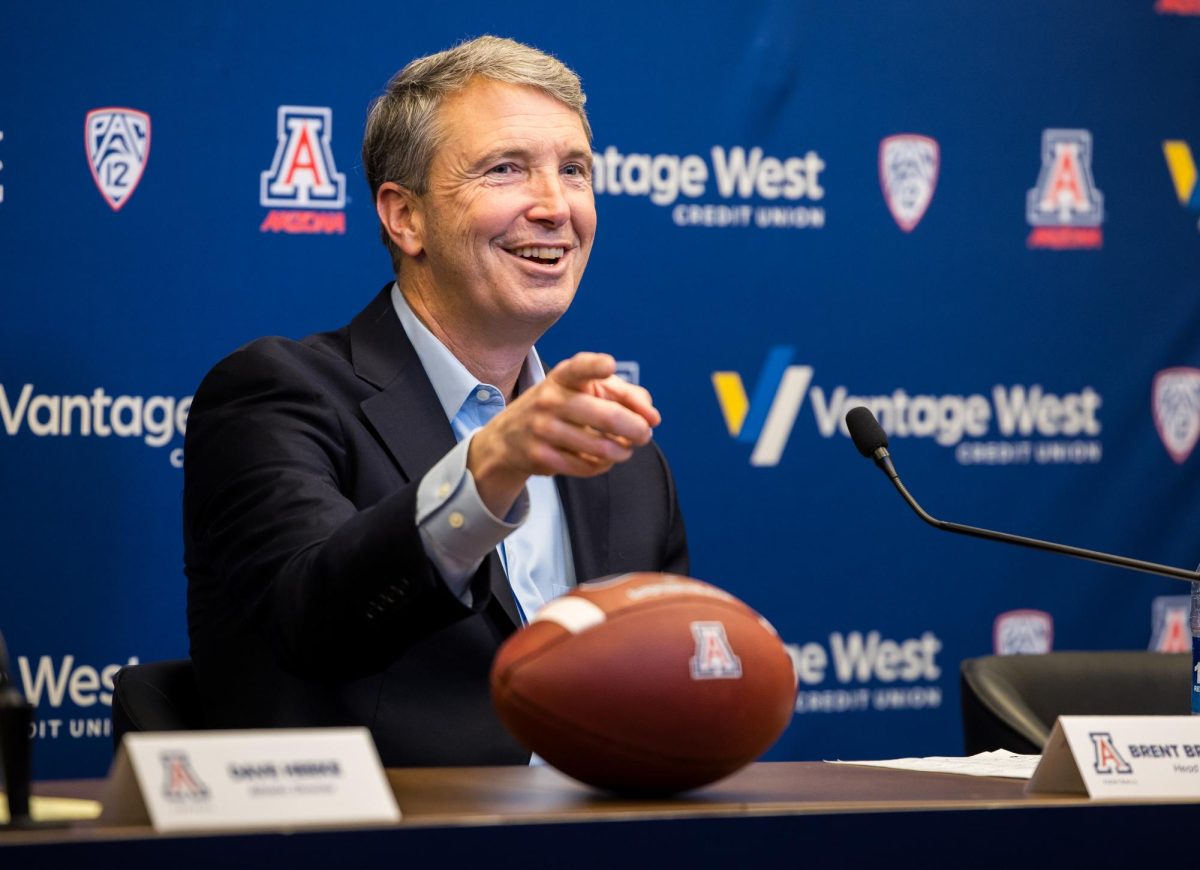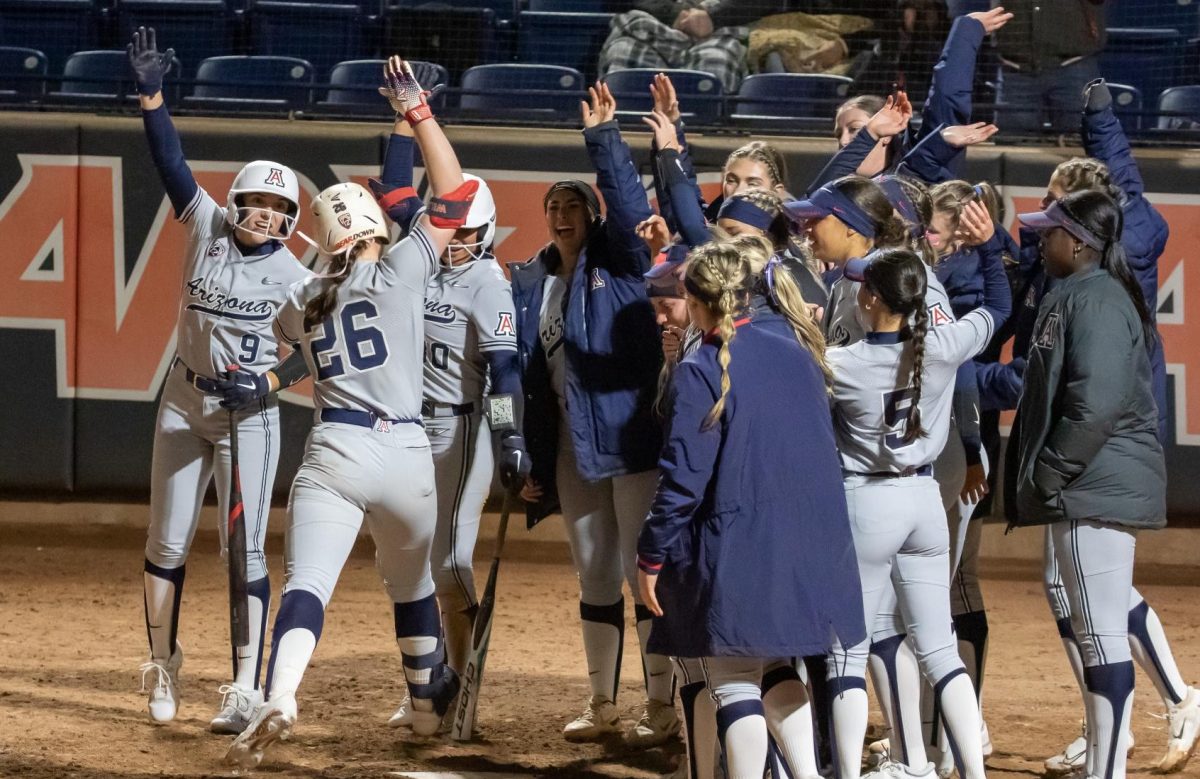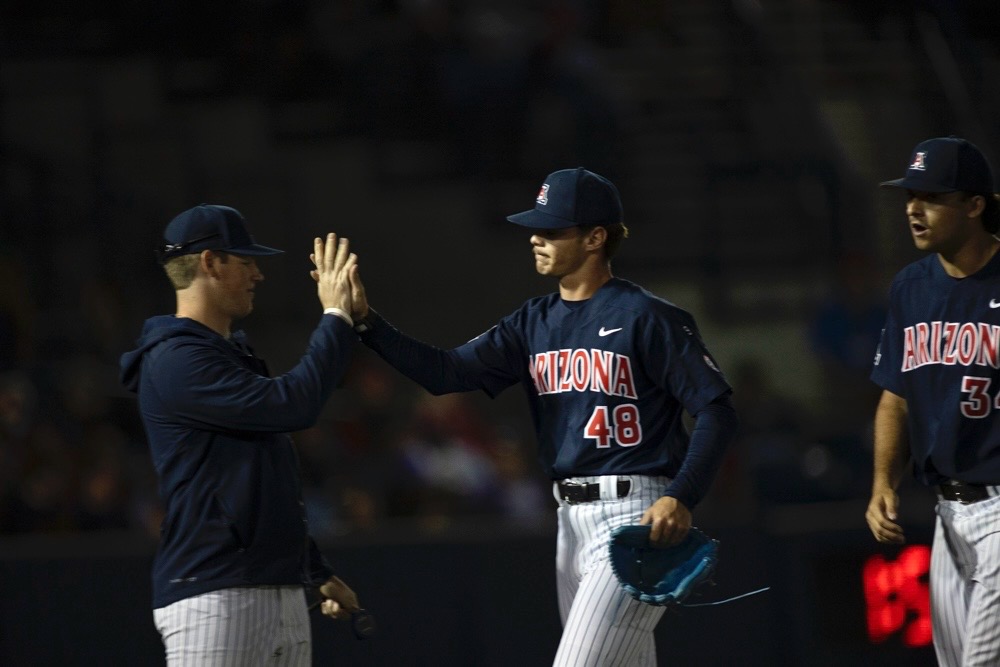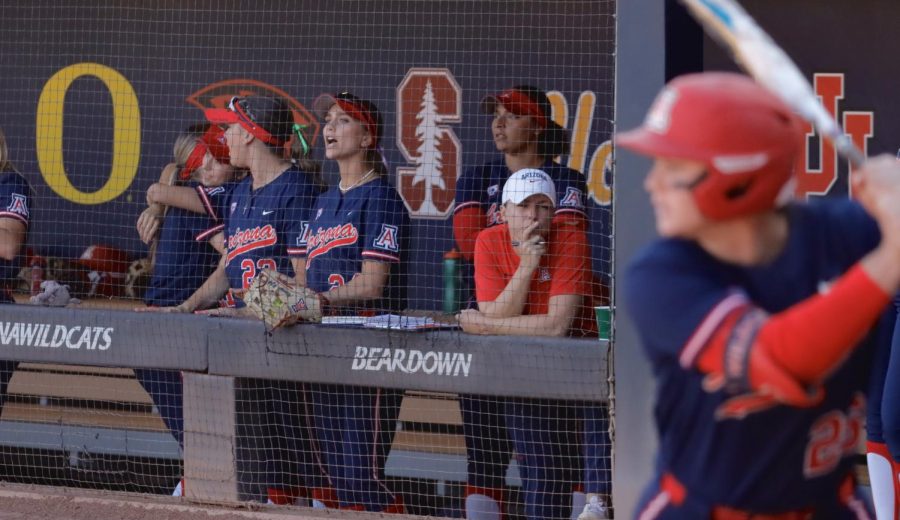In a no-huddle offense, like the one Arizona will run under head coach Rich Rodriguez, with the ball constantly on the move there isn’t much time to stop and talk too much about a play call for a quarterback. That’s why most teams create signals that a head coach or assistant coach will sign to a quarterback to get the play call in quickly and try to catch the defense off guard.
Rodriguez said after practice Tuesday that his system isn’t the easiest to grasp because it’s become more complicated over the years as other teams start figuring them out.
“We have a pretty complicated signal system because we’ve done it so long,” Rodriguez said. “Every game is on TV and sometimes you get signals on there so we have multiple signals for every play.
We even see if our own guys, that see it every day, if they can pick it up. So its not really complicated for our guys, but I hope it is for the opponents.”
Senior quarterback Matt Scott is the player who receives the signal from Rodriguez, and therefore has to constantly be ready for what is being thrown at him from the sideline without let it become a distraction to the point where he messes up a play. Scott, though, isn’t too worried, and his background as a baseball player receiving calls from the third base coach helps that.
“It’s pretty easy,” Scott said. “It’s not anything too complicated.”
The routine for receiving a play call isn’t too arduous a process.
“I find out where the center’s at, I get my depth from him, I look for the signal, I get the signal and call it to the O-Line,” Scott explained.
Rodriguez understands that over time, eventually the opponents picks up on the signals, which isn’t much of an issue because adjustments are constantly made to them, but he said in the past he’s witnessed teams doing something against the rules to learn about play calls.”
“We’ve had people before that actually filmed us, “ Rodriguez said. “Which you’re not supposed to do. They film the signal callers and try to match it and all that. You can’t do that. When I was at West Virginia that happened a few times, but over the years we’ve developed a better system that’s harder to pick up.”
Special Teams a question mark in week one
Rodriguez expressed a bit of a concern for the special teams unit because the team has, in large part, avoided doing too many special teams drills to avoid injuries.
“Well that’s probably one of the big unknowns,” Rodriguez said. “Because we’ve gone live only a little bit on special teams but not a lot because you worry about losing guys. That’s where you wish you had a preseason game because then you would go live, and know more about (the unit).
“I’m probably more nervous about that than anything else just because they haven’t done a lot.”
Hall back with the team
Following practice on Aug. 21, Rodriguez told the media that he wasn’t sure of injured safety Adam Hall’s status with the team and that they would be meeting on Thursday (Aug. 23). It appears the situation was sorted out, as Hall was back working out with the Wildcats on Tuesday.
“He’s with the program now,” Rodriguez said. “He’s just here working out. We have all of our injured guys that have to come and wear yellow or green and work out with the strength coaches and trainers.”
Hall missed all but one game in 2011 with an injured ACL, and is expected to miss all of this season after suffering the same injury in the spring game. He recorded 10 tackles and forced a fumble in his one appearance against Oregon State last year, and in 2010 he had 54 tackles, two interceptions and three pass breakups.



